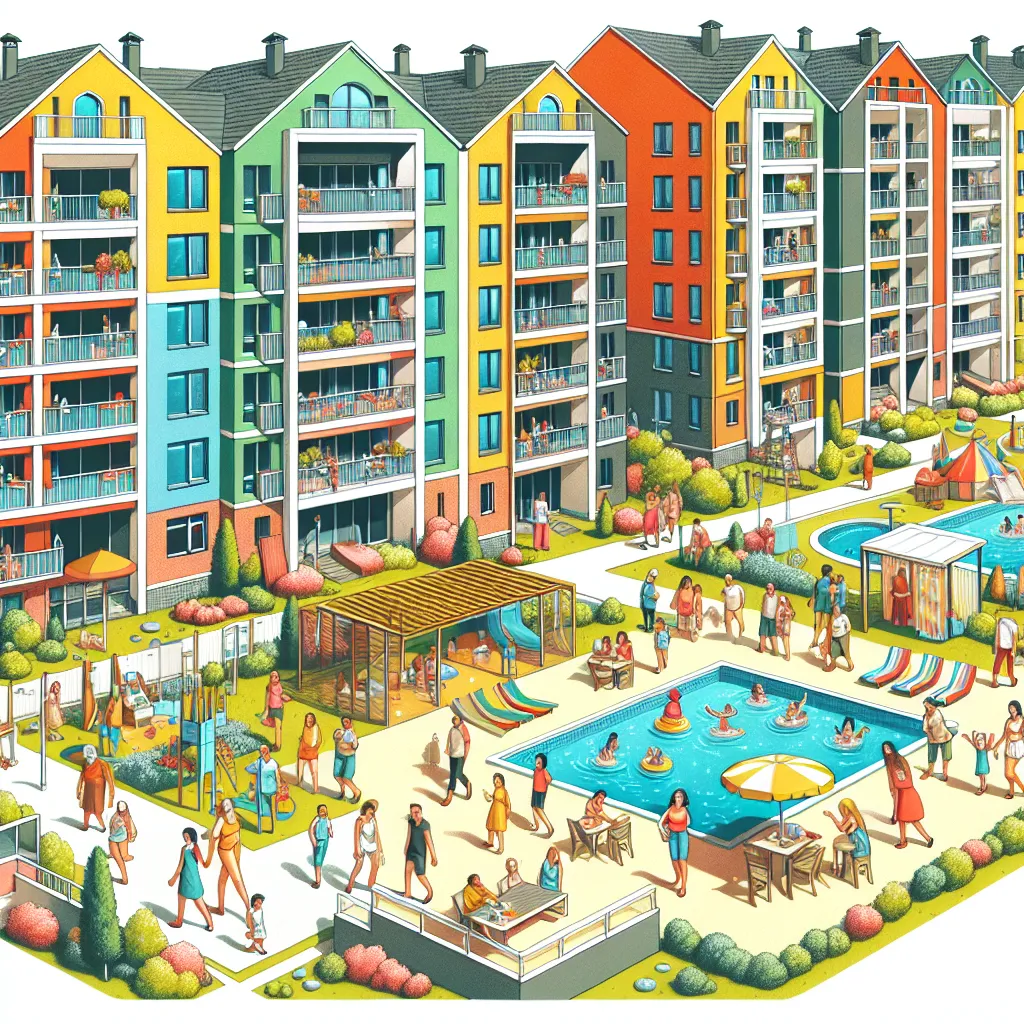Ever wondered why your monthly property bill in Turkey includes something called “aidat”? It’s not just an arbitrary number. Aidat is a quintessential part of living in a community-managed property, and it plays a pivotal role in maintaining the quality and functionality of your living environment. Let’s dive into what aidat truly represents, how it’s calculated, and why it matters to every homeowner or tenant.

What is Aidat?
In the bustling world of Turkish real estate, aidat refers to the monthly or yearly fee collected from property owners or tenants in shared residential complexes. This fee ensures the smooth operation and maintenance of common facilities such as gardens, pools, elevators, and security systems. Think of it as a communal piggy bank that keeps your neighborhood running like a well-oiled machine.
The Importance of Aidat
Community Maintenance
Aidat is essential for the upkeep of shared spaces. Without it, gardens could become overgrown, pools might turn green, and security systems could falter. This fee guarantees that everyone enjoys a clean, safe, and pleasant environment.
Financial Planning
For property managers, aidat provides a predictable income that allows for meticulous financial planning. It ensures that there are always funds available for routine maintenance and unexpected repairs. This stability is crucial for preventing the community from falling into disrepair.
Enhanced Property Value
Properties in well-maintained complexes often retain or increase in value. A well-funded aidat system ensures that the property remains attractive to potential buyers or renters, thereby safeguarding your investment.
How is Aidat Calculated?
Aidat isn’t just pulled out of thin air. It’s calculated based on several factors:
- Size of the Property: Larger units generally pay more since they benefit more from communal resources.
- Number of Facilities: Properties with extensive amenities like gyms, pools, and saunas will have a higher aidat to cover these luxuries.
- Location: Prime locations in bustling city centers may incur higher fees due to increased maintenance demands and higher operational costs.
Here’s a simple breakdown:
| Factor | Impact on Aidat |
|---|---|
| Property Size | Higher for larger units |
| Number of Facilities | Increases with more amenities |
| Location | Higher in urban areas |
Challenges and Considerations
Transparency Issues
One common gripe among residents is the lack of transparency in how aidat is spent. It’s crucial for property management to keep residents informed about expenditures to prevent mistrust and dissent.
Rising Costs
Aidat fees can increase over time, often due to inflation or enhancements in the facility’s offerings. While this may be justified, sudden hikes can strain homeowners’ budgets.
Aidat in the Context of Buying, Renting, or Selling
When considering a property in Turkey, aidat should factor into your decision-making process. Here’s how:
- Buying: Check the aidat history to understand the financial health of the property and any potential future increases.
- Renting: Factor the aidat into your monthly budget. It could significantly impact your affordability.
- Selling: A well-maintained property with a reasonable aidat can be a selling point, attracting buyers looking for hassle-free living.
Leveraging AnySqft’s AI-Driven Platform
Navigating the world of aidat can be daunting, but platforms like AnySqft simplify the process. By integrating AI-driven insights, AnySqft offers detailed property evaluations, helping you understand the full financial picture before making a decision.
Conclusion
Understanding aidat is crucial for anyone involved in the Turkish real estate market. It not only affects your immediate living conditions but also impacts your long-term financial planning. By being informed and proactive, you can make smarter, more sustainable property decisions. So, next time you see “aidat” on your bill, you’ll know it’s more than just a fee—it’s your contribution to a thriving community.
What is Aidat?
Aidat refers to the monthly fee collected from residents in shared properties, such as apartment complexes or sites. It covers common expenses like:
- Maintenance of shared areas
- Utility bills for communal facilities
- Security services
Key Points:
- Contributors: Both property owners and tenants are responsible for paying aidat.
- Calculation: Typically based on the size of the property or the share of common areas.
For those navigating the complexities of property management, AnySqft offers insightful tools and resources to help you make informed decisions. Discover more at AnySqft.